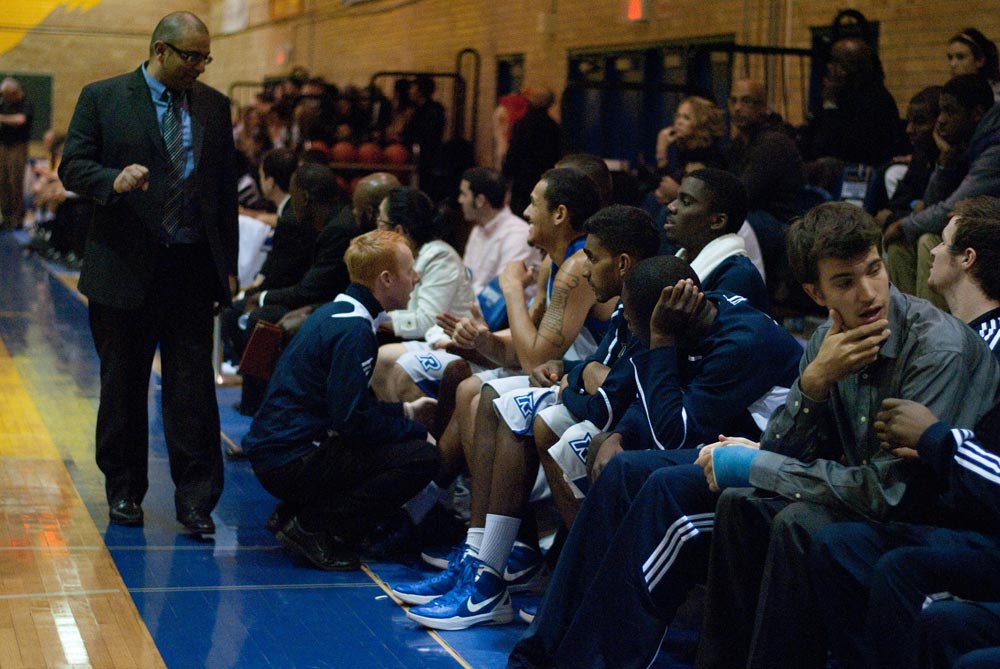By Jessica Murray
It’s a locker-room norm that remains unspoken: finding a female coach for a male athletic team. There are many female varsity teams with male coaches, but the opposite appears to be scarce. In the Ontario University Athletics (OUA) there is one female head coach of a men’s varsity team: Brenda Willis, of Queen’s coaches the university’s male volleyball team. Currently at Ryerson, there are no female head coaches for any of the men’s varsity teams.
“I don’t see gender as either a positive or a negative,” said Ivan Joseph, Ryerson’s director of athletics. “Whether it’s for coaching or playing.”
When hiring a coach, Joseph says he looks for a “proven pedigree of success,” not for a particular gender. According to Joseph, who has coached both male and female sports teams, the issue isn’t so much about who coaches, but rather with their players.
“I prefer to coach women. With men I have to always prove why I’m asking them to do something; there’s always a sense of doubt,” said Joseph. “Most men’s [soccer] players are ‘Mister Know-it-Alls.’ I find that the women I’ve coached in the past are more eagerly accepting of feedback. Women are focused and turned on right from the get-go when it’s game day; it isn’t the same as the men’s team.”
Alice Lu coaches Ryerson’s fencing team. The team’s roster boasts both male and female athletes, and Lu notices there are mental and physical differences between the two sexes. These differences force her to coach the players differently.
“In fencing there is a foundation of skills, but you treat them [males and females] differently by looking at their physical force,” says Lu. “Men are usually faster than women. Women are not as fast, but all the skills are the same.”
The players themselves can intimidate a coach preventing them from instructing a particular team. But part of the problem may be finding a female coach who is willing to coach a male team. Lisa Jordan, the head coach of the women’s hockey team at Ryerson, is confident in her ability. Joseph says her no-nonsense approach would fit well.
“I think I could adapt to coaching males, but if I had the choice I’d stay with females,” says Jordan. “But I think I’d be able to hold my own in a male environment.”
Jordan, who has one of the best winning records in Canadian women’s hockey, says that the opportunities for females to gain the experience needed to coach at the highest level are difficult to come by.
Females coaching men’s teams are novelties to anyone outside the team, she says. “You’d hold the respect of your players, but among other peers and coaches there are so many stereotypes about not being confident enough,” said Jordan. Personality fitting the team matters too. “Females probably gel better with females and males gel better with males.”
Aleksa Miladinovic, a second- year chemistry student and member of the Ryerson volleyball team, disagrees with the stereotype.
“Whoever [the coach] is, male or female, if they have know-how about the game and they can treat the team very well, I don’t think it matters very much,” he said.
Whether female coaches for male teams are not predominant as a result of lacking opportunity or gender biases, this absence appears to be a common across the board in the athletics world. “It doesn’t seem like the trend is changing anytime soon,” said Jordan.










Leave a Reply